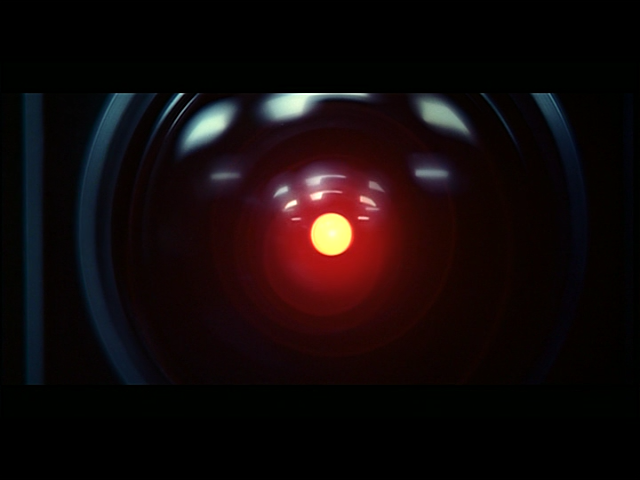This is not a new issue. Security has been dealing with data stored encrypted with obsolete algorithms since forever. Anybody who uses encryption at rest is already used to dealing with this, because computing power is rising continuously and flaws keep being found in old algorithms.
I think about this often. I think that Millennials, and especially Gen Z, will be the best-documented lives in history. Almost everything you’ve ever done online is sitting on a hard drive somewhere. Once the encryption schemes are broken, posterity will have full access to all of it. They’ll probably study us for hundreds of years—possibly thousands (if we even make it that far as a species).
I’ve also wondered if all of that data collected about a person could be used to recreate them—a digital copy. It probably wouldn’t be perfect, but I bet it would be close enough to be useful.
I’m definitely not excited for people to have access to and study my college Facebook account :-P
I think you vastly overestimate the future’s interest in your life.
People are already complaining about how the AI training data from recent forums are “contaminated” with outputs from other AIs, if you want something “purely human” to work from then historical pre-2023 data is the best bet.
In the final analysis, nobody cares what Harold Q. Dumpington bought from Amazon in the week of June 4, 2017. That information is technically still stored in Amazon’s databases, but (1) Amazon already has access to it, so encryption is a sort of non-issue, and (2) nobody cares.
The reality is: socially engineering a password or setting up a “man in the middle” attack in a coffee shop WiFi is a hell of a lot easier than attacking encrypted data, but even those attacks are relatively rare, and usually executed against corporations with money. As tempting as it would be for some hacker to get into Jennifer Lawrence’s e-mail or Chris Pratt’s Amazon purchase history, it seems that it’s really not worth the effort to anybody, except in some edge cases.
Putting aside the whole question of what people might want to feed into an AI, why would anybody want that data AT ALL?
MC Frontalot has a song about this, Secrets from the Future.
Exactly. This is like the biggest problem with today’s society. Everyone thinks they are unique and sigificant… you are not.
The dirty erotic fan fic stories you wrote when you were 14 aren’t going to ruin your life if they are found. What will ruin your life is when you find out how little anyone gives a fuck about you.
Future people do not give a damn about your shopping, your Visa number SSL’d to Cherry-Popping Hot Grampa Action websites that you visit, nor password-protected partitions, no matter how illicit.
And this, it would seem, is your saving grace: the amazing haste of people to forget your name, your face, your litanous list of indefensible indiscretions.
They’ll glance you over, I guess, and then for a bare moment you’ll persist to exist; almost seems like you’re there, don’t it? But you’re not. You’re here. Your name will fade as Front’s will.
Historians and anthroplogists will likely be the only people who ever regularly access this kind of data if it’s available in the future.
We are a period-genuine curiosity that will certainly be reconstructed in the future—if the data is available to do so. Our lives, logs, and transactions are a finite resource if simply because they are real.
Imagine a hobby, digging up old logs and piecing together various accounts across deep datsets, working toward a bigger picture… and then realize this is all intuited through whatever present AI. No labor involved, at all, and there is no time limit on this.
We’re all eventually just an intelligent query away from being rediscovered if outside of average in any respect, and even the most average person will become a celebrated oddity.
I’ve also wondered if all of that data collected about a person could be used to recreate them—a digital copy. It probably wouldn’t be perfect, but I bet it would be close enough to be useful.
I think people overestimate how accurate these models are. Based on the ads I get, I’m sure they fully don’t understand who I am as a person and what my interests are. I have never once cared about Kanye or the Kardashians, and yet I get ads for “news” about them fucking constantly.
Once the encryption schemes are broken, it’s not just posterity, but every malicious actor with access to encryption-breaking tech will have a field day.
I don’t mind a large collection of data about me being made available to historians, I just mind that happening with my contemporaries.
That’s actually the lesser issue, because we have quantum-resistant encryption algorithms already. The problem is with old stuff that was stored encrypted with pre-quantum algorithms.
Did you read the article? I will point out that we have/are working on quantum safe encryption algorithms so this is kind of unecessary doom and gloom. I actually work in this area and tbh the algorithms are ready to be implemented whenever companies want to. NIST QSC competition: https://csrc.nist.gov/projects/post-quantum-cryptography
In fact algorithms like AES are still quantum safe as long as key sizes are increased sufficiently
What I meant was that info already exists. It was sent using older crypto.
Digital content is so easy to lose or destroy I don’t think it will be used for thousands of years. I’ve got a floppy from 1996 and I have no way of reading it and would probably corrupt the data if I tried.
Digital data does not last anywhere near as long as physical artifacts like paper. Most of the data on a hard drive will be irretrievable after a hundred years.
Sure, if it isn’t copied a million times. You’re assuming it is left on the same disk.
everything in the article is could this, could that, could could could. So this looks like good old FUD.
It’s a shame they didn’t link to the actual announcement post and are a week late:
https://blog.chromium.org/2023/08/protecting-chrome-traffic-with-hybrid.html
Quantum computers will make current encryption methods a joke.
Nah plenty of encryption services switched to quantum resistant encryption half a decade ago.
I am not doubting you but could you share some sources?











